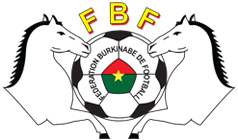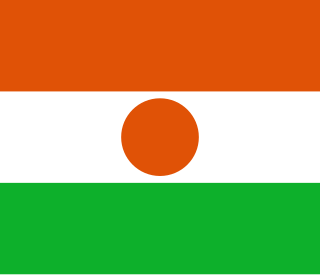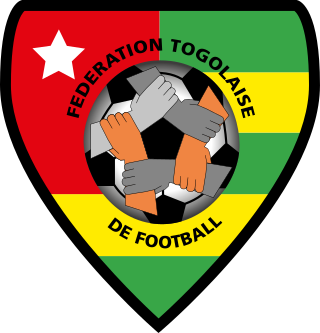Related Research Articles

The Tunisia national football team represents Tunisia in men's international association football competitions and it is controlled by the Tunisian Football Federation (TFF), which governs football in Tunisia. On the continental level, the team competes under the Confederation of African Football (CAF), which governs associate football in Africa, and is also affiliated with FIFA for global competitions. Additionally, the team is a member of the Union of North African Football (UNAF) and the Union of Arab Football Associations (UAFA). The team is colloquially known as Eagles of Carthage by fans and the media, with the bald eagle serving as its symbol. Their home kit is primarily white and their away kit is red, which is a reference to the national flag of the country. The team has qualified for the FIFA World Cup six times, qualified for the Africa Cup of Nations twenty-one times, competed in four editions of Summer Olympics and one participation in the FIFA Confederation Cup. Tunisia's main venue is the Hammadi Agrebi Stadium in Radès, Tunis since 2001. Kais Yaâkoubi, is the team’s interim head coach, since 5 November 2024. Tunisia played their first match after their independace against Libya and they won 4–2.
The Gabon national football team represents Gabon in men's international football. The team's nickname is The Panthers and it is governed by the Gabonese Football Federation. They have never qualified for the FIFA World Cup, but have qualified eight times for the Africa Cup of Nations. Gabon is a member of both FIFA and Confederation of African Football (CAF).

The Mauritania national football team, nicknamed Al-Murabitun in the reference to Almoravid dynasty, represents Mauritania in men's international football. It is controlled by the Féderation de Football de la République Islamique de Mauritanie, and is a member of the Confederation of African Football. They have not qualified for the FIFA World Cup. However, in the Amílcar Cabral Cup, a regional tournament for West Africa, Mauritania came fourth in 1980 on hosting the competition. The national football team of Mauritania later runners-up in 1995, losing on penalties to Sierra Leone after the final finished 0–0.

The Central African Republic national football team, nicknamed Les Fauves, is the national team of the Central African Republic and is controlled by the Central African Football Federation. They are a member of CAF. Despite being traditionally one of the weakest teams in Africa and the world, they recently achieved success. They won the 2009 CEMAC Cup by beating Gabon in the semi-finals and Equatorial Guinea in the final 3–0. Their FIFA ranking rose from 202nd in August 2010 to 89th by July 2011. On 10 October 2010, they earned a shock 2012 Africa Cup of Nations qualifier win at home against Algeria 2–0, which put them top of their qualification group. The team won its first FIFA World Cup qualifier on 2 June 2012 after beating Botswana 2–0 at home.

The Algeria women's national football team represents Algeria in international women's football.

Sibiri Alain Traoré is a Burkinabé professional footballer who plays as a striker for Arta/Solar7, and the Burkina Faso national team. He started his career with local side Planète Champion, before moving to France as a 17-year-old.
The Equatorial Guinea women's national football team, nicknamed the Nzalang Femenino, has represented Equatorial Guinea in senior international women's football competition since 2000. It is controlled by the Equatoguinean Football Federation, the governing body for football in Equatorial Guinea.

Football is the most popular sport in Burkina Faso. And the national association can look back on recent developments with a great deal of pride. Reaching the semi-finals of the African Cup of Nations on home soil in 1998, reaching the knockout stage for their first FIFA World Youth Championship in 2003, and appearances at two final competitions of the CAF U-17 Cup, as well as third place at the FIFA U-17 World Championship in Trinidad and Tobago in 2001 are the country's outstanding achievements at international level. The nations most famous players include Kassoum Ouegraogo, nicknamed Zico, who had his most successful seasons with Espérance de Tunis before ending his career in Germany, Siaka Ouattara, who spent his entire career with Mulhouse in France, and Moumouni Dagano, who was voted best African player in Belgium in 2001, when he played for the Belgian side Genk. He later went on to play for the French side Guingamp before transferring to another French team, FC Sochaux in 2005. Burkina Faso received an unexpected free pass into the group stage of the 2006 FIFA World Cup qualification process, when their opening round contestant, the Central African Republic, withdrew from the competition. This gave the West Africans, who were at that stage ranked 14th on the continent, the certainty that their name would be in the hat when the Preliminary Draw for the 2006 FIFA World Cup in Germany was made. They got off to a flying start, beating Ghana 1-0 in their opening match and laying down a marker for their Group 2 adversaries South Africa, Cape Verde Islands, Congo DR and Uganda. The victory train began to come off the rails with two defeats to Cape Verde, and with a record of two wins and three losses, Burkina Faso were up against it at the half-way stage. Frenchman Bernard Simondi took over the coaching reins from Ivica Todorov and made the team harder to beat at home, even recording wins over South Africa and Congo DR, but in the end it was not quite enough, and the likes of Abdoulaye Cisse, Moumouni Dagano, and Wilfred Sanou went no further in the competition.

The West African Football Union, officially abbreviated as WAFU-UFOA and WAFU, is a sports governing body representing the football associations in West Africa that was founded in 1975 and is a subregional body of the Confederation of African Football (CAF).
The Mali women's national football team represents Mali in women's international football and is overseen by the Malian Football Federation, the governing body for football in Mali. They play their home matches at the Stade Modibo Kéïta, a multi-purpose stadium located in the city of Bamako.

The Burkina Faso women's national football team represents Burkina Faso in international women's football. It is governed by the Burkinabé Football Federation. It played its first match on 2 September 2007 in Ouagadougou against Niger and won 10–0, the best result till today. Its next matches were against Niger (5–0) and Mali (2–4).

The Niger women's national football team represents Niger in international women's football. It is governed by the Nigerien Football Federation. It has played in four FIFA-recognised matches, two of which were losses to Burkina Faso women's national football team in 2007. There is an under-20 women's national team who were supposed to participate in the 2002 African Women U-19 Championship but withdrew before playing a game. Some problems impact the development of the women's game in Africa that effect Niger.

The Togo women's national football team represents Togo in international women's football since 2006. It is governed by the Togolese Football Federation (FTF), the governing body of football in Togo. The team has played five FIFA-recognised matches, in 2006 and 2007, before reappearing in the 2018 WAFU Women's Cup, set in Abidjan, Ivory Coast. Their manager since January 2018 is Kaï Tomety. Togo's home stadium is the Stade de Kégué, located in Lomé.
Fatoumata Leila N'Diaye is a Malian-Congolese (Brazzaville) footballer who plays as a forward and captains Epah-Ngamba of Pointe-Noire. Born in the Republic of the Congo to Malian parents, she was a member of the Mali women's national team and after that she played in the Equatorial Guinean women's league and subsequently capped for the Equatorial Guinea women's national team.
Annette Jacky Messomo is a footballer who plays as a midfielder for Kosovan Women's Football League club KFF A&N. Born and raised in Cameroon, she is a naturalized citizen of Equatorial Guinea and has played for that women's national team.
Salimata Simporé is a Burkinabé footballer who plays as a forward for Belarusian Premier League club FC Minsk and the Burkina Faso women's national team.
The Burkina Faso women's national under-20 football team is the women's under-20 youth team for national football in Burkina Faso. The team is controlled by the Burkinabé Football Federation.

Fatima Zahra Tagnaout is a Moroccan professional footballer who plays as a midfielder for AS FAR and the Morocco women's national team.
References
- ↑ Haoua Yao at WorldFootball.net
- ↑ Sorgho, Bassourou (1 September 2005). "Tournoi des cinq Nations : un football féminin de haut niveau". leFaso.net (in French). Retrieved 20 December 2020.
- ↑ Duret, Sébastien (29 November 2008). "Coupe d'Afrique des Nations : la Guinée Equatoriale championne". Footofemenin.fr (in French). Retrieved 20 December 2020.
- 1 2 3 "FIFA Women's World Cup Germany 2011 – List of Players: Equatorial Guinea" (PDF). FIFA. 28 July 2014. p. 6. Archived from the original (PDF) on 26 June 2011. Retrieved 4 January 2020.
- 1 2 "Finale du tournoi féminin international : La Juventus de Yopougon tout sourire". leFaso.net (in French). 30 August 2004. Retrieved 18 December 2020.
- 1 2 Romba, Claude. "Le sacre de l'AS Mandé ?". zedcom (in French). Archived from the original on 19 May 2007. Retrieved 20 December 2020.
- ↑ "Cameroon hold defending champions". BBC Sport . 2 November 2010. Archived from the original on 4 January 2020. Retrieved 4 January 2020.
- ↑ "Official squad list 2011 FIFA Women's World Cup". FIFA . 17 June 2011. Archived from the original on 12 July 2011. Retrieved 17 June 2011.
- ↑ "7th African Women Championship - PLAYERS LIST" (PDF). CAF. p. 3. Archived from the original (PDF) on 28 September 2012. Retrieved 18 December 2020.
- ↑ "5e CAN féminine: la sélection equato-guinéenne" (in French). RFI. 30 October 2006. Retrieved 3 May 2018.
